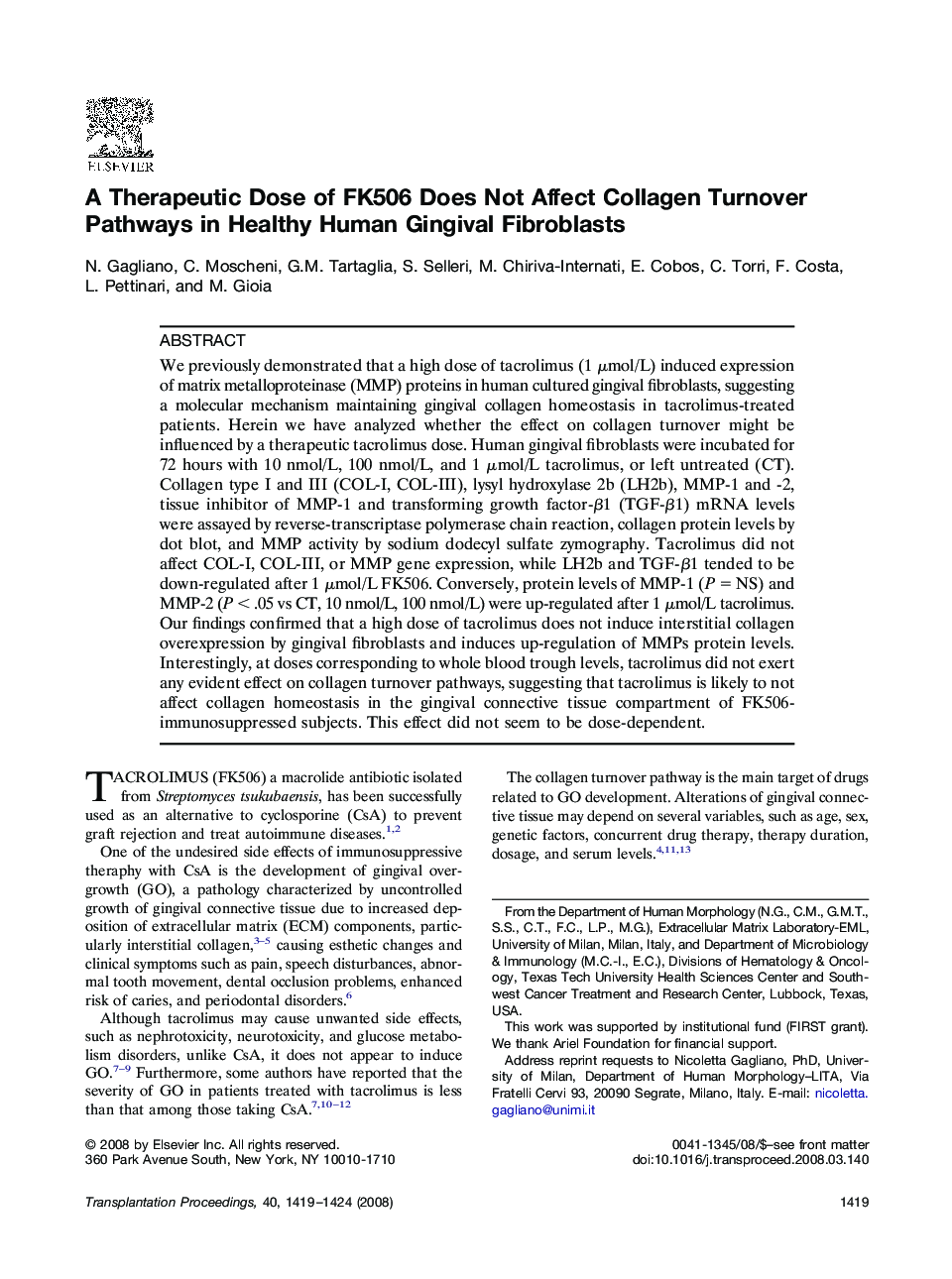| Article ID | Journal | Published Year | Pages | File Type |
|---|---|---|---|---|
| 4258232 | Transplantation Proceedings | 2008 | 6 Pages |
We previously demonstrated that a high dose of tacrolimus (1 μmol/L) induced expression of matrix metalloproteinase (MMP) proteins in human cultured gingival fibroblasts, suggesting a molecular mechanism maintaining gingival collagen homeostasis in tacrolimus-treated patients. Herein we have analyzed whether the effect on collagen turnover might be influenced by a therapeutic tacrolimus dose. Human gingival fibroblasts were incubated for 72 hours with 10 nmol/L, 100 nmol/L, and 1 μmol/L tacrolimus, or left untreated (CT). Collagen type I and III (COL-I, COL-III), lysyl hydroxylase 2b (LH2b), MMP-1 and -2, tissue inhibitor of MMP-1 and transforming growth factor-β1 (TGF-β1) mRNA levels were assayed by reverse-transcriptase polymerase chain reaction, collagen protein levels by dot blot, and MMP activity by sodium dodecyl sulfate zymography. Tacrolimus did not affect COL-I, COL-III, or MMP gene expression, while LH2b and TGF-β1 tended to be down-regulated after 1 μmol/L FK506. Conversely, protein levels of MMP-1 (P = NS) and MMP-2 (P < .05 vs CT, 10 nmol/L, 100 nmol/L) were up-regulated after 1 μmol/L tacrolimus. Our findings confirmed that a high dose of tacrolimus does not induce interstitial collagen overexpression by gingival fibroblasts and induces up-regulation of MMPs protein levels. Interestingly, at doses corresponding to whole blood trough levels, tacrolimus did not exert any evident effect on collagen turnover pathways, suggesting that tacrolimus is likely to not affect collagen homeostasis in the gingival connective tissue compartment of FK506-immunosuppressed subjects. This effect did not seem to be dose-dependent.
